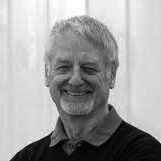Coaching programme
Coaching is unlocking a person’s potential to maximise their own performance. It is helping them to learn rather than teaching them.

Coaching process, conversation style and model
Coaching is a process that aims to improve performance and focuses on the ‘here and now’ rather than on the distant past or future. In coaching, fundamentally, the coach is helping the individual to improve their own performance: in other words, helping them to learn. In a coaching conversation the student leads the discussion and sets the agenda in negotiation with the coach.
The GROW (Goal/s, Reality, Options, Will) model will guide the coaching sessions, with the purpose of assisting students in becoming accountable for their goals. It can also spark curiosity and encourage students to push themselves to reach their full potential.
The coach's role
The coach’s role is to provide the student the time and space to think freely and honestly about what they want to improve in themselves.

Abu Ullah
(Widening Participation Tutor)
Coaching benefit and output
Coaching can help a student reflect and develop awareness to better assess their strengths and areas for development in their academic and personal life.
The coaching process should encourage self-reflection, goal setting, reflection on habits of learning and putting in place students’ own strategies to achieve their goals.
By the end of a coaching cycle, the student should have a plan in place or be actively working on one to make those personal improvements.
Coaching cycle
Sessions can be delivered in-person or online allowing the student flexibility, especially for when they are on placement and other time pressures.
Each student will be offered 4 x 55 minute sessions per week with a minimum of a 2/3-week interval in between each session.
A final 5th session 2 months after the 4th session to review progress.
Coaching cycle format:
- Session 1: Overview of student’s reality and finding out main academic/life goals – Worksheets used to aid the process. Coach and student sign a contract to ensure confidentiality, attendance and the setting of goals and other responsibilities.
- Session 2: Exploring what is blocking the student from achieving their goals – and exploring potential student led solutions. More directed actions and worksheets depending on the themes of the conversation
- Session 3: Implementation of a plan driven by the student – Continuing to explore how to achieve goals
- Session 4: Developing a longer-term strategy on how to remain focused – Continuing the strategies the student has utilised during the coaching cycle into the future. Closure, feedback from student on coaching service – Feedback questionnaire.
- Session 5: Post 2 month follow up – Assesses how the student has been progressing after the final session. 40min session assess progress and captures general feedback from the student
Focus of coaching sessions
The time is the student’s time they can discuss the area/s or goal/s that is most relevant to them and what they want to focus on.
- Career/Life goals
- Choosing a direction
- Dealing with pressure
- Improve/Build confidence
- Independent learning/ Increasing productivity
- Problem solving
- Procrastination/Time management
- Realising your strengths/ Maximising effectiveness
- Staying motivated/ Keeping focused
- Overcoming imposter syndrome
- Understanding your values and beliefs
How to apply
Students can self-refer for coaching and we’ll proceed if coaching is the best approach. Tutors can refer students for coaching by completing an application for a student.
Application: to apply for a coaching session, please complete the HSK Coaching application questionnaire form.
Once the application has been received you’ll receive a response within 10 working days. An initial 10-15min phone call will be arranged to further assess your needs before the first appointment is booked and the cycle begins.
If you require further information, please email the hskpac@herts.ac.uk.
